中国共产党尊重和保障人权的伟大实践(双语全文)
新华网 2021-06-25 10:01

三、筑牢人民当家作主的根本制度
III. Ensuring the People's Position as Masters of the Country
新中国成立以来,中国共产党坚持人民主体地位,从国情和实际出发,建立起以人民代表大会制度这一根本政治制度、中国共产党领导的多党合作和政治协商制度、民族区域自治制度、基层群众自治制度等为主要内容的人民当家作主制度体系,为维护最广大人民根本利益奠定了坚实的制度基础。
Since the founding of the PRC in 1949, the CPC has established systems that respect China’s actual conditions and ensure the people’s principal status as masters of the country. The main ones are people’s congresses, which form the fundamental political system of China, CPC-led multiparty cooperation and political consultation, regional ethnic autonomy, and grassroots self-governance. These systems have laid a firm institutional foundation for protecting the fundamental interests of the people.
(一)根本政治制度的人权保障
1. Ensuring Human Rights Through the Fundamental Political System
人民代表大会制度是中国的根本政治制度。这一制度的核心是保证国家的一切权力属于人民,人民通过人民代表大会这一组织形式参与国家事务的管理,行使当家作主的权利。
The system of people's congresses is China's fundamental political system. The essence of the system is to ensure that all power in the country belongs to the people and that the people participate in the management of state affairs and exercise power as masters of the country through the people’s congresses.
人民代表大会制度从根本上保证了人民当家作主的权利。第一,全国人民代表大会是最高国家权力机关,全国人民代表大会和地方各级人民代表大会都由民主选举产生,对人民负责,受人民监督。选举权和被选举权是首要的公民权利。选民或选举单位有权依照法定程序选举代表,并有权依照法定程序罢免自己选出的代表。第二,人民代表大会及其常委会严格按照民主集中制的原则,集体行使国家权力,集体决定问题,代表和反映人民的意志和根本利益。全国人民代表大会、地方各级人民代表大会每届任期五年,全国人民代表大会会议每年举行一次,地方各级人民代表大会会议每年至少举行一次。第三,人民代表大会统一行使国家权力,国家行政机关、监察机关、审判机关、检察机关都由人民代表大会产生,对它负责,受它监督。第四,全国人民代表大会及其常委会行使国家立法权。对宪法的修改,由全国人民代表大会以全体代表的三分之二以上的多数通过。法律和其他议案由全国人民代表大会以全体代表或者由全国人大常委会组成人员的过半数通过。
The system of people's congresses ensures the rights of the people as the masters of the country. First, the National People’s Congress (NPC) is the highest state organ of power. The NPC and the local people’s congresses at all levels are created through democratic election; they are responsible to the people and subject to their oversight. The right to vote and stand for election is a basic right. Constituencies and organizations have the power to elect deputies and to remove them from office in accordance with procedures prescribed by law.
Second, in strict accordance with the principle of democratic centralism, people’s congresses and their standing committees exercise state power, decide on matters collectively, and represent the will and the fundamental interests of the people. Each NPC and local people’s congress has a term of five years. An NPC session is held once every year, while each local people’s congress convenes at least once every year.
Third, state power is exercised through people’s congresses. All administrative, supervisory, judicial and prosecuting organs of the state are created by the people’s congresses, answer to them, and are subject to their oversight.
Fourth, the NPC and its Standing Committee exercise the legislative power of the state. Amendments to the Constitution must be adopted by a vote of at least two-thirds of NPC deputies, while laws and other bills shall be adopted by a majority vote of NPC deputies or of members of the NPC Standing Committee.
截至2021年4月,全国各级人民代表大会代表共有262万多人。各级人大代表来自各民族、各行业、各阶层、各党派,具有广泛的代表性。各级人民代表大会中均有相当数量的工人、农民代表。第十三届全国人民代表大会代表中,工人、农民代表占总数的15.7%。为保证国家的权力真正掌握在全体人民手中,代表在履行职责时,必须反映和代表人民的利益和意志。代表有权依法提出议案、审议各项议案和报告、对各项议案进行表决,在人民代表大会各种会议上的发言和表决受法律保护。
As of April 2021, there are more than 2.6 million deputies to people’s congresses at all levels. The deputies are broadly representative of all ethnic groups, sectors, social strata and political parties. Among them are a considerable number of deputies who are workers or peasants. Among the deputies to the 13th NPC, workers and peasants account for 15.7 percent. To ensure that state power is truly in the hands of the people, deputies must represent the interests and will of the people when performing their duties. Deputies are entitled to submit, examine and vote on bills and proposals. The statements and votes of deputies at meetings of people's congresses are protected by the law.
实践充分证明,在中国实行人民代表大会制度,是中国人民在人类政治制度史上的伟大创造。人民代表大会制度是符合中国国情、体现中国社会主义国家性质、保证中国人民当家作主的根本政治制度。中国各族人民通过人民代表大会制度牢牢地把国家和民族的前途命运掌握在自己手里。
The system of people's congresses is a unique political structure created by the people of China. It embodies the nature of the PRC as a socialist country and ensures that the Chinese people are the masters of the country. Through this system, the peoples of all ethnic groups hold the destiny of China and the nation firmly in their own hands.
(二)政党制度的人权保障
2. Ensuring Human Rights Through the Political Party System
中国的政党制度是中国共产党领导的多党合作和政治协商制度,既不同于西方国家的两党或多党竞争制,也有别于一些国家实行的一党制。在中国,除了执政的中国共产党外,还有8个民主党派。各民主党派不是在野党,也不是反对党,它们是接受中国共产党领导、同中国共产党通力合作的亲密友党,是中国特色社会主义参政党。“共产党领导、多党派合作,共产党执政、多党派参政”,是中国政党制度的基本特征。这一制度是从中国土壤中生长出来的新型政党制度,是中国共产党与各民主党派、无党派人士在中国革命、建设和改革的长期实践中确立和发展起来的,是中国的一项基本政治制度,具有历史的必然性、伟大的独创性和巨大的优越性。
The political party system of China involves multiparty cooperation and political consultation under the leadership of the CPC. It is different from the two-party or multiparty systems of Western countries and the one-party systems of some other countries. In China, in addition to the governing CPC, there are eight other political parties. These are not opposition parties. They maintain good relations with the CPC, accepting the latter’s leadership and cooperating fully with it; they are participants in governance under the framework of socialism with Chinese characteristics. This framework of multiparty cooperation and participation under CPC leadership and governance is the defining feature of China’s political party system. This system is a new model that has grown out of the soil of China. It was established and developed by the CPC, other political parties and prominent individuals without party affiliation (non-affiliates) over the long period of China’s revolution, economic development and reform. It was a historical necessity; it represents great ingenuity; it possesses enormous strengths.
中国共产党广开言路,通过多党合作和政治协商制度,发展社会主义民主政治,推进协商民主广泛多层制度化发展。民主党派和无党派人士参政的主要内容是:参加国家政权,参与重要方针政策、重要领导人选的协商,参与国家事务的管理,参与国家方针政策、法律法规的制定和执行。中国共产党就事关国计民生的重大问题在决策前和决策执行中,同各民主党派、无党派人士直接协商,在人民政协同社会各界人士广泛协商。
The CPC encourages the free airing of views. Through multiparty cooperation and political consultation it is committed to developing socialist democracy and advancing extensive, multilevel and institutionalized consultative democracy. In participating in governance, the main duties of the other political parties and the non-affiliates are assuming government office, and participating in consultations over major policies and candidates for key leadership positions, the management of state affairs, and the formulation and implementation of state policies, laws and regulations. Before decision-making on major issues concerning the country’s stability and the people’s wellbeing and during its implementation, the CPC carries out direct consultation with the other political parties and the non-affiliates and holds extensive consultations with people from all sectors of society at the sessions of the Chinese People’s Political Consultative Conference (CPPCC).
据不完全统计,中共十八大以来,各民主党派中央、无党派人士向中共中央、国务院提出意见建议730多件;自2018年3月全国政协十三届一次会议至2021年4月,全国政协共收到提案23048件。许多意见和建议被采纳,为凝聚共识、推进国家现代化建设发挥了重要作用。
Since the 18th CPC National Congress, central committees of the other political parties and non-affiliates have submitted more than 730 proposals to the CPC Central Committee and the State Council. From the First Session of the 13th CPPCC National Committee held in March 2018 to April 2021, the CPPCC National Committee received 23,048 proposals. Many of these have been adopted, playing an important role in building consensus and helping to modernize the country.
中国共产党领导的多党合作和政治协商制度实现了执政与参政、领导与合作、协商与监督的有机统一,体现了社会主义民主的本质要求,有利于保障中国社会各阶层的利益和要求,有利于倾听人民呼声、反映人民愿望、增进人民福祉,在内容上体现了人民的权利诉求,在程序上体现了人民当家作主。
The CPC-led multiparty cooperation and political consultation system has realized unity between governance and participation in governance, leadership and cooperation, and consultation and oversight. It embodies the essential requirement of socialist democracy. It is conducive to protecting the interests of all social groups in China and ensuring that their expectations are met; it is conducive to making the voice of the people heard, reflecting their wishes, and improving their wellbeing. This structure ensures that people’s rightful claims are honored through a procedure guaranteeing the supremacy of the people.
(三)民族区域自治制度的人权保障
3. Ensuring Human Rights Through the System of Regional Ethnic Autonomy
中国是统一的多民族国家,铸牢中华民族共同体意识,始终保持国家完整统一,实现各民族共同团结奋斗、共同繁荣发展,是中国共产党民族政策的方针宗旨。民族区域自治制度,是指在国家统一领导下,各少数民族聚居的地方实行区域自治,设立自治机关,行使自治权的制度。民族区域自治制度在宪法以及民族区域自治法中得到明确,是中国的一项基本政治制度。
China is a unified multiethnic state. Heightening a sense of identity of the Chinese nation, always maintaining the integrity and unification of the country, and all ethnic groups working jointly for common prosperity and development are the goals of the CPC’s ethnic policies. The system of regional ethnic autonomy means that areas with large ethnic minority populations shall practice regional autonomy, establish autonomous organs, and exercise the power of self-government under the unified leadership of the state. This basic political system is clearly specified in the country’s Constitution and its Law on Regional Ethnic Autonomy.
中国实行民族区域自治,以领土完整、国家统一为前提和基础,体现了统一与自治的结合、民族因素与区域因素的结合,完全符合中国国情和实际。中国的民族区域自治,是在国家统一领导下的自治,各民族自治地方都是中国不可分离的一部分,民族自治地方的自治机关都是中央政府领导下的一级地方政权,都必须服从中央统一领导。
Territorial integrity and national unification are preconditions for regional ethnic autonomy. They combine unification with autonomy and ethnic factors with regional factors, and are perfectly suited to China’s realities. China’s regional ethnic autonomy is autonomy under the unified leadership of the state. All ethnic autonomous areas are inseparable parts of the country, and all autonomous organs of these areas are local governments subject to the unified leadership of the central government.
实行民族区域自治,从制度和政策层面保障了少数民族公民享有平等自由权利以及经济、社会、文化权利。155个民族自治地方的人民代表大会常务委员会中,均有实行区域自治民族的公民担任主任或者副主任;民族自治地方政府的主席、州长、县长或旗长,均由实行区域自治的民族的公民担任。中国根据各少数民族的特点和需要,帮助各少数民族地区加速经济和文化发展。
Regional ethnic autonomy provides institutional and policy guarantees to ensure that ethnic minority citizens enjoy rights to equality and freedom and to economic, social and cultural services. On all standing committees of people’s congresses of the 155 ethnic autonomous areas, there are citizens from the ethnic groups exercising autonomy assuming the office of chair or vice chair; all governors, prefectural commissioners, heads of counties, or banners of ethnic autonomous areas are citizens from the ethnic groups exercising autonomy. China considers the characteristics and needs of all ethnic minorities, and assists all ethnic minority areas in accelerating their economic and cultural development.
(四)基层民主制度的人权保障
4. Ensuring Human Rights Through the Institutions of Grassroots Democracy
基层民主制度与保障人民群众的切身利益密切相关。中国的基层民主有以村民委员会为组织形态的农村村民自治、以城市居民委员会为组织形态的城市居民自治、以职工代表大会为组织依托的企事业单位职工自治等多种形式,人民群众广泛、直接参与社会事务管理。宪法、村民委员会组织法、城市居民委员会组织法、工会法等法律法规对基层民主自治制度作了相应规定,提供了法律基础和制度保障。
The institutions of grassroots democracy are crucial to protecting the immediate interests of the people. Grassroots democracy operates in multiple forms, including self-governance through villagers committees in rural areas, self-governance through urban residents committees, and self-governance in enterprises and public institutions through workers congresses. Through these organizations, the people participate extensively and directly in the management of social affairs. The Constitution, the Organic Law of the Villagers Committees, the Organic Law of the Urban Residents Committees, the Trade Union Law and other laws and regulations contain provisions on the system of democratic self-governance at the grassroots level, providing a legal basis and institutional guarantee.
广大人民在城乡基层群众性自治组织中,直接行使民主选举、民主协商、民主决策、民主管理和民主监督的权利,实现自我管理、自我服务、自我教育、自我监督。城乡居民依法选举产生了近280万名村(居)委会成员,村(居)民会议、村(居)民代表会议制度逐步完善,城乡居民参与民主决策渠道进一步拓宽。各地依托村(居)民议事会、村(居)民理事会、村(居)民听证会等形式,开展灵活多样的议事协商活动。村规民约、居民公约实现全覆盖,城乡居民自我约束更加规范。村(居)务监督委员会全面建立,村(居)务公开工作持续深化,民主评议和经济责任审计工作普遍开展。全国已有28个省(区、市)制定了35部有关企业民主管理的地方性法规,初步形成了以职工代表大会为基本形式,以厂务公开、职工董事、职工监事、平等协商集体合同制度为法定形式,以职工民主管理委员会、民主议事会等为补充形式的企业民主管理制度体系。
Through grassroots urban and rural organizations for self-governance, the people directly exercise their rights to democratic elections, consultations, decision-making, management, and oversight and manage their own affairs by involving the local residents in educating and serving the community and exercising public scrutiny. Urban and rural residents have elected almost 2.8 million members of the grassroots committees. The systems of committee meetings and congresses are improving, and the channels for urban and rural residents to participate in democratic decision-making are widening. Localities conduct discussions and consultations in flexible and diverse forms such as councils, hearings and others. All rural villages and urban communities have formulated their codes of conduct and the self-regulation of urban and rural residents has become more rule-based. Oversight committees have been universally established; the work to make community affairs more transparent is expanding; democratic appraisal and economic responsibility audit are carried out as a norm.
Across the country, 28 provinces and equivalent administrative units have formulated 35 local regulations concerning democratic management of enterprises. A preliminary institutional framework has been formed, with workers congresses as the basic element. The framework features open access to enterprise affairs, employees serving as board directors and board supervisors, and negotiation of collective contracts on an equal footing, supplemented by employees committees for democratic management and employees democratic councils.









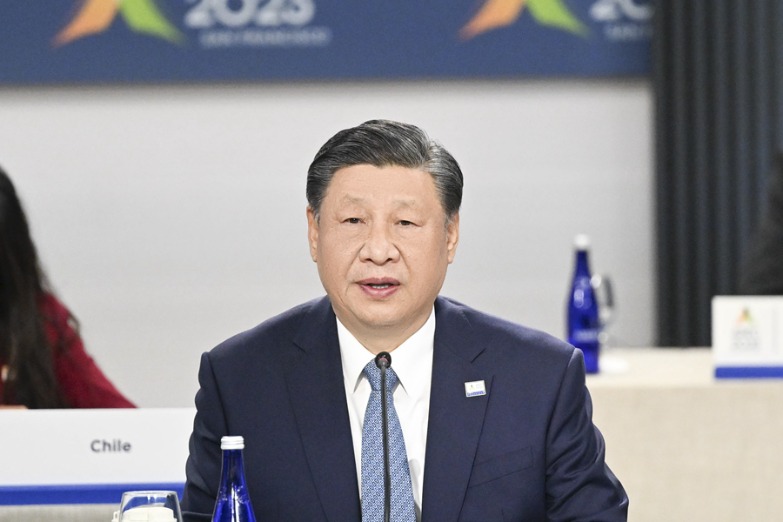
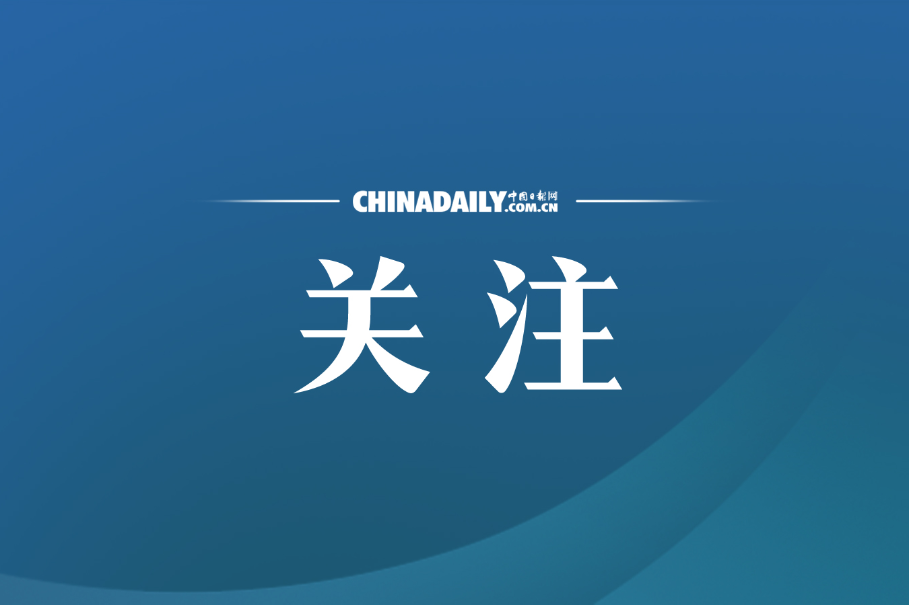
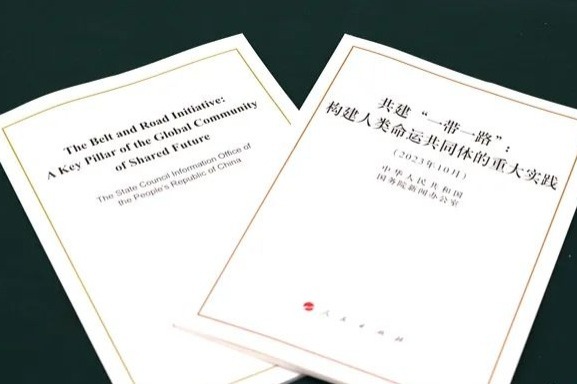
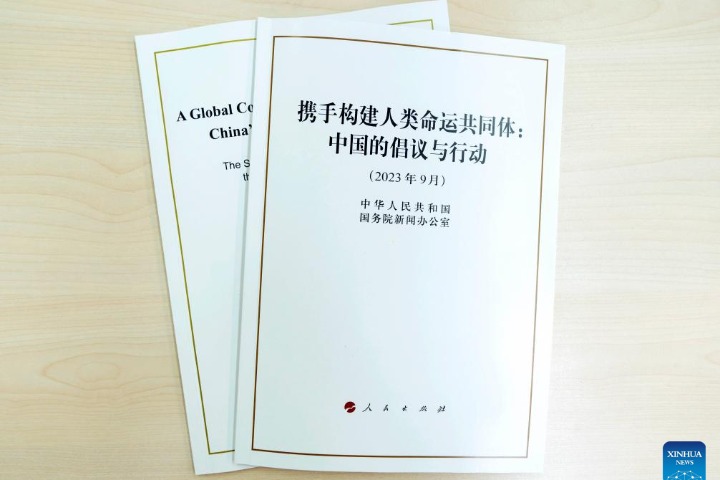
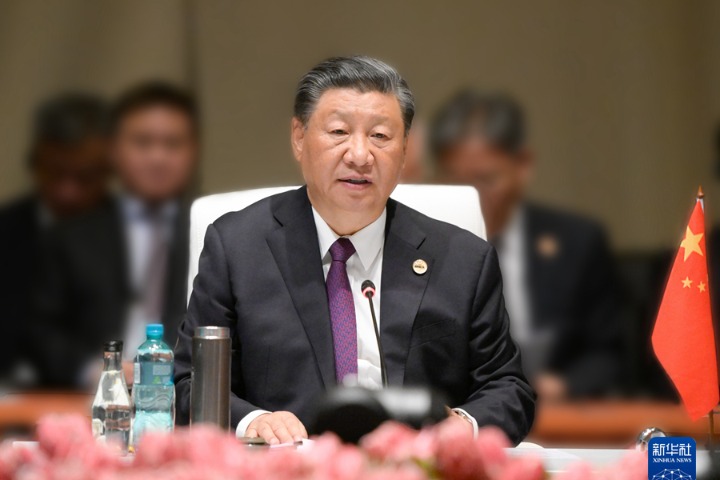



 英语点津微信
英语点津微信 双语小程序
双语小程序